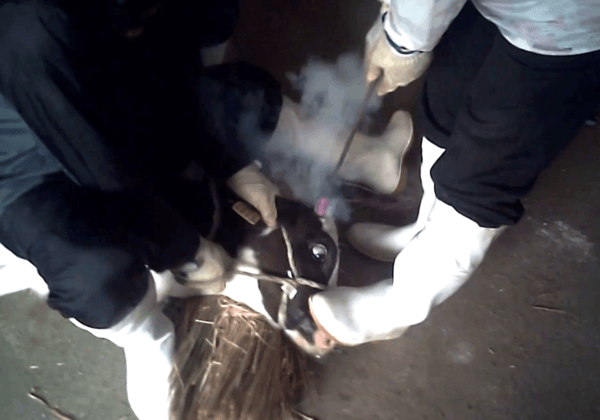The Myth That Is ‘Sustainable’ Fishing
 Sustainable fishing: a noble idea. That’s the notion that we can capture and kill hundreds of thousands of aquatic animals every year while still maintaining—or increasing—the populations of those animals in the ocean. Easy enough, right?
Sustainable fishing: a noble idea. That’s the notion that we can capture and kill hundreds of thousands of aquatic animals every year while still maintaining—or increasing—the populations of those animals in the ocean. Easy enough, right?
Wrong. With modern society’s advances in technology, we now have extremely efficient fishing practices that leave no escape for our scaly friends. As a result, billions are slaughtered every single year, rendering the concept of “sustainable fishing” nothing more than a fantasy.
Commercial fishing is irrevocably devastating our oceans and our environment. In the last 50 years alone, 90 percent of large fish populations have been wiped out, leaving the oceans in critical condition. Many commercial fishing vessels practice bottom-trawling in order to catch sea animals who live near, on, or under the sea floor, such as flounder, cod, grouper, shrimp, and scallops. This technique has been fittingly compared to the disastrous clear-cutting of forests, although its scale is even greater. Elliott Norse, chief scientist of the Marine Conservation Institute, says, “Scientists find that bottom-trawling is the largest disturbance to the world’s sea floor and possibly the largest human-caused disturbance to the biosphere.”
Not only are the numbers of fish dwindling, sea turtles, birds, seals, whales, sharks, and other nontarget animals also inevitably become collateral damage. They become tangled in nets or hooked by longlines and are thrown overboard to fall victim to swarming birds or to bleed to death in the water.
“Sustainable fishing” enthusiasts subscribe to the myth that by fishing only for certain fish at various times of the year and by collaborating with the industry, governments, chefs, restaurants, consumers, and retailers, our oceans can be saved. But we have passed the point where this might have worked. Current populations of fish are too low for any of these methods to make a difference. Our only remaining weapon to combat overfishing is abstinence from eating fish and seafood. One of the world’s leading marine biologists, Dr. Sylvia Earle, has chosen to leave fish and other seafood off her plate. She stresses that “every fish counts at this point” and explains that “if we value the ocean and the ocean’s health at all, we have to understand that fish are critical to maintaining the integrity of ocean systems, which in turn make the planet work.”
Not only is capturing, killing, and eating fish unsustainable, it can also pose many health risks. Because our oceans are increasingly polluted, fish flesh is frequently contaminated with mercury and PCBs, among other toxins that are dangerous to our health.
If we continue to treat fish as a commodity, we will soon be faced with a barren and desolate sea, stripped of all traces of life: a ghost sea. Just as we visit museums to wonder at the bones of long-extinct dinosaurs, our children will gaze upon skeletons and fossils of fish with awe, imagining with incredulity a time when the oceans swarmed with life.
Do the planet a favor, do your health a favor, and do fish a favor by eliminating fish from your diet today.
Post written by former PETA Asia intern Natalie Crick








